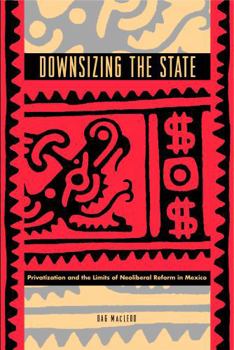Downsizing the State: Privatization and the Limits of Neoliberal Reform in Mexico
Beginning in 1983, the Mexican government implemented one of the most extensive programs of market-oriented reform in the developing world. Downsizing the State examines a key element of this reform program: the privatization of public firms.Drawing upon interviews with government officials, business executives, and labor leaders as well as data from government archives and corporate documents, MacLeod highlights the difficulties of linking market reforms to improved public welfare. Privatization failed to live up to its promise of raising living standards or decentralizing the economy. Indeed, privatization actually increased the concentration of wealth in Mexico while redirecting the economy toward foreign markets. These findings contribute to theoretical debates regarding state autonomy and the embeddedness of economic action. MacLeod calls into question the autonomy of the Mexican state in its privatization program. He shows that the creation of markets where public firms once dominated has involved both the destruction of social relations and the construction of new relations and institutions to regulate the market.
Format:Paperback
Language:English
ISBN:0271026987
ISBN13:9780271026985
Release Date:July 2005
Publisher:Penn State University Press
Length:320 Pages
Weight:1.06 lbs.
Dimensions:0.7" x 6.3" x 9.0"
Customer Reviews
0 rating





